31.07.2023
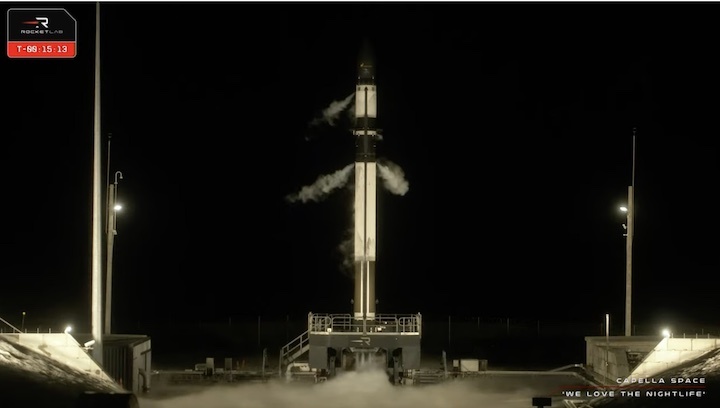
Rocket Lab Electron aborts launch in final seconds
Updated 3:19 a.m. EDT (0710 UTC): The launch of the Electron rocket was aborted during the engine ignition sequence. Rocket Lab has scrubbed the launch for today.
Updated 12:39 a.m. EDT (0439 UTC): New launch time 0700 UTC (7 p.m. New Zealand time/3 a.m. EDT).
Launch Preview:
In a launch market dominated by SpaceX, Rocket Lab continues to cement its place in the orbital delivery landscape with plans for the 40th launch of its Electon rocket early Sunday.
Liftoff of the small-satellite launcher has been rescheduled for 0700 UTC (7 p.m. New Zealand time/3 a.m. EDT) from Rocket Lab’s Pad B on Launch Complex 1 at Mahia, New Zealand.
Electron is carrying its 171st satellite to date, Acadia 1, the first of four new radar-imaging satellites for Earth observation company, Capella Space. The mission is named “We Love the Nightlife” for the satellite’s ability to make observations day and night.
These Synthetic Aperture Radar (SAR) Earth-imaging satellites are the third generation of satellites for Capella Space. The company said this next generation of satellites are designed to “expand the existing Capella constellation to provide highest quality imagery, best ground-range resolution, and the fastest order-to-delivery speeds available from any commercial SAR provider.”
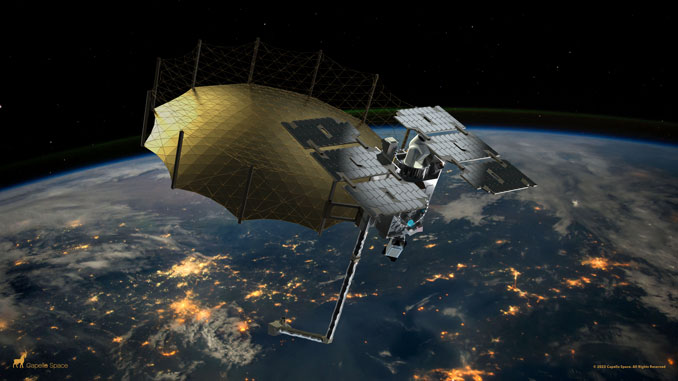
The small-lift Electron rocket made its debut in May 2017, but a ground software failure meant that the mission dubbed “It’s a Test” was unsuccessful.
It’s next flight on Jan. 21, 2018, called “Still Testing,” successfully launched satellites for Planet Labs and Spire Global. By its fourth flight, it was flying payloads for NASA and other government customers.
There were 11 consecutive, successful orbital launches until the 13th flight on July 4, 2020, nicknamed “Pics or It Didn’t Happen,” experienced a mid-launch problem. An issue during the second stage engine burn resulted in the loss of payloads for customers Canon Electronics Inc., In-Space Missions, Planet and Spaceflight Inc.
Rocket Lab went onto have six more good launches before another failure on its 20th flight, “Running Out of Toes”.
Since then, the company has enjoyed a string of 19 successful liftoffs. Rocket Lab is also working on allowing for reusability with its Electron rocket.
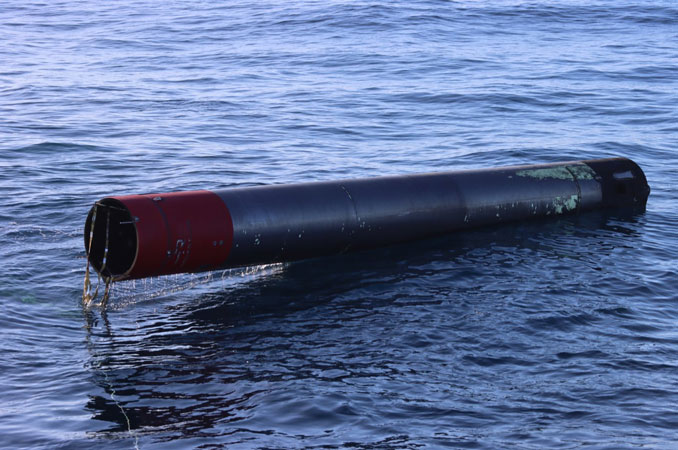
After originally attempting to catch falling first-stage boosters in mid-air using a helicopter, it pivoted to landing its boosters in the ocean for recovery by ship.
Most recently, Rocket Lab successfully recovered the first stage used on its last mission in July.
As it continues to launch its small launch vehicle, Electron, Rocket Lab continues work on its larger, reusable rocket, Neutron, which is expected to make its debut in 2024.
Quelle: SN
----
Update: 7.08.2023
.
Rocket Lab’s Electron rocket launch scrubbed
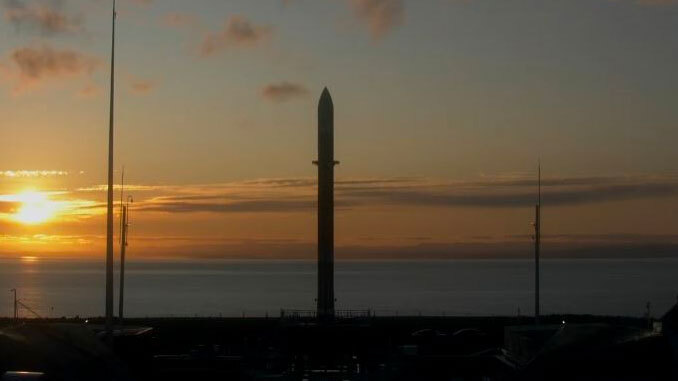
Rocket Lab has called off Sunday’s attempt to launch its 40th Electron rocket due to “out-of-family sensor data”. It made the announcement about 15 minutes before the two-hour launch window opened at 0500 UTC (1 a.m. EDT/5pm NZST). No new launch date has been set.
Electron’s payload, Acadia 1, is the first of four new radar-imaging satellites for Earth observation company, Capella Space. The mission is named “We Love the Nightlife” for the satellite’s ability to make observations day and night.
These Synthetic Aperture Radar (SAR) Earth-imaging satellites are the third generation of satellites for Capella Space. The company said this next generation is designed to “expand the existing Capella constellation to provide highest quality imagery, best ground-range resolution, and the fastest order-to-delivery speeds available from any commercial SAR provider.”
The previous launch attempt on July 30 was aborted after engine ignition just moments before liftoff. Rocket Lab founder and Chief Executive Peter Beck said one of the automatic abort was triggered when one of Electron’s nine Rutherford engines reported a low igniter pressure.
“Its not uncommon to see low pressures now and again, we just have not seen it lead to an abort for a while,” he wrote in a Tweet. “My bet is a tricky pressure transducer.”
Strong winds at the rocket’s launch site on the east coast of New Zealand’s North Island forced a further delay in the rescheduled launch.
It will be the 40th launch of the Rocket Lab’s Electron rocket since it first flew in May 2017. Acadia 1 will be the 171st satellite the rocket has carried.
Quelle: SN
----
Update: 25.08.2023
.
Rocket Lab reuses engine on Electron launch
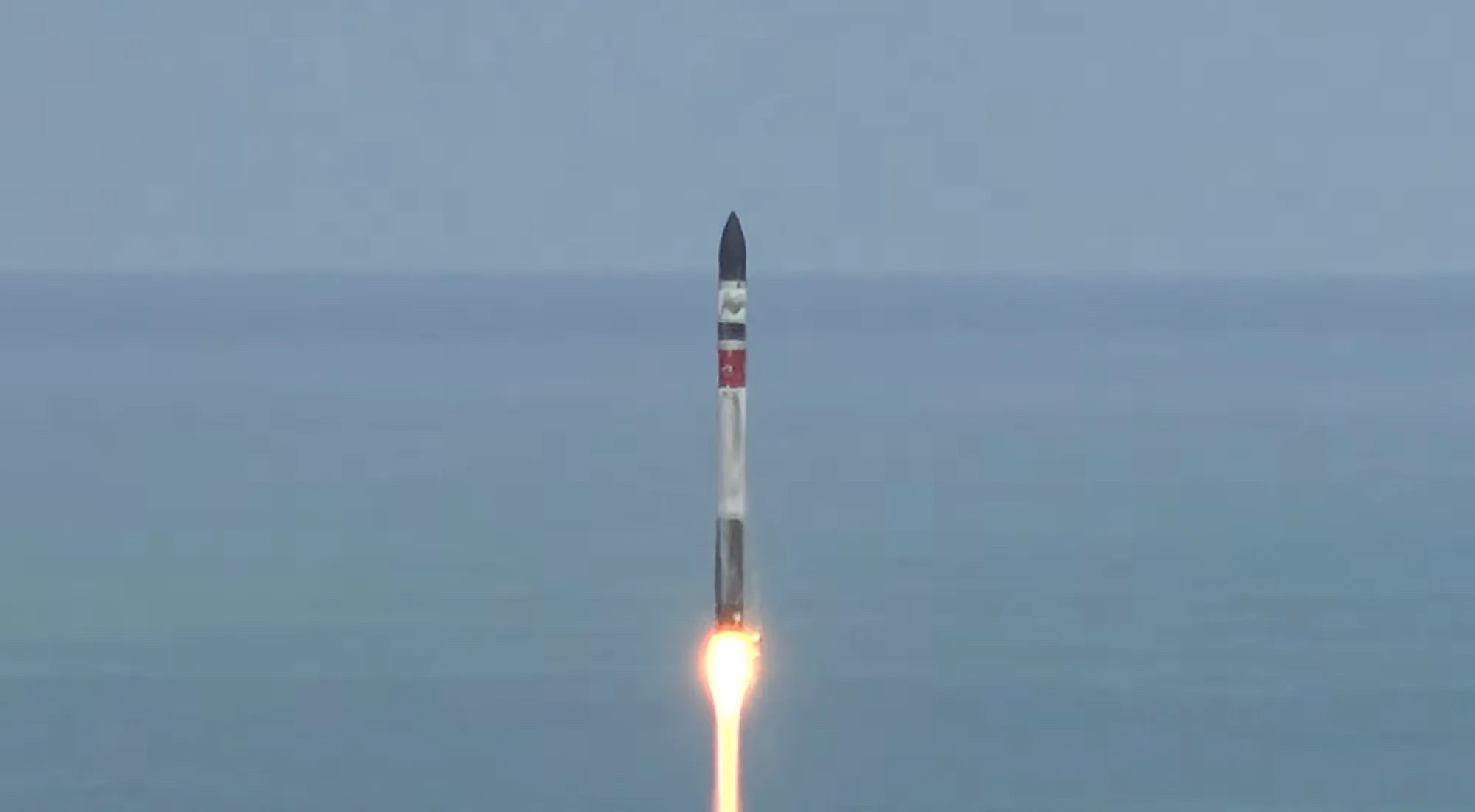
An Electron rocket lifts off Aug. 23 carrying a Capella Space satellite. The Electron first stage included an engine that had previously flown on a launch in May 2022. Credit: Rocket Lab webcast
WASHINGTON — Rocket Lab successfully reflew an engine on an Electron launch Aug. 23 as the company moves a step closer to reusing the entire rocket booster.
The Electron rocket lifted off from the company’s Launch Complex 1 in New Zealand at 7:45 p.m. Eastern. The “We Love the Nightlife” mission deployed a Capella Space radar imaging satellite into a 640-kilometer mid-inclination orbit 58 minutes after liftoff.
The launch was originally scheduled for July 30 but scrubbed because of data from a sensor in one engine that indicated low igniter pressure. A second attempt on Aug. 6 was also scrubbed.
Rocket Lab decided to replace the entire booster with one that the company had just completed. The new booster, unlike the original one, was designed for recovery.
“The call was made to bring forward that recovery booster and swap the payload onto this Electron to tighten the turnaround to get back to the pad for Capella and accelerate our efforts to make Electron a reusable rocket at the exact same time,” Rocket Lab spokesperson Murielle Baker said during the launch webcast.
The booster not only was designed for reuse but also, among its nine Rutherford engines, was one that had flown on an Electron launch in May 2022. The engine had gone through what Rocket Lab described as multiple full-duration hotfire tests to confirm it could be flown again.
“The data is in, perfect performance from the reused engine and the stage,” Peter Beck, Rocket Lab chief executive, tweeted after the launch.
During an Aug. 8 earnings call, Beck suggested that reflying a Rutherford engine, then scheduled for some time before the end of the year, was one of the final steps before the company is ready to reuse an entire booster.
“From there we’ll schedule the first reflight of a full stage booster,” he said in the call, but did not offer a timeline for doing so beyond noting that additional improvements to support reusability were planned for the 45th flight of the vehicle.
This launch, the 40th for the Electron, carried the first of Capella’s Acadia line of synthetic aperture radar imaging satellites. Those satellites will offer increased image resolution and quality, as well as improved communications for both tasking the satellites and downlinking imagery.
The launch was the first of four Electron missions carrying Acadia satellites under a contract between Rocket Lab and Capella Space announced in February. Those launches will take place in “rapid succession,” the companies said then, but did not disclose a more specific schedule.
This was the eighth Electron mission of 2023, including one launch of the suborbital version of Electron called HASTE. In the earnings call, Rocket Lab continued to forecast conducting 15 Electron launches this year.
“I can’t believe we’re at flight 40. Honestly, it feels like flight 1 was just a few weeks ago,” Beck said in a video during the launch webcast. That first Electron launch took place in May 2017. “I can’t wait for 80 and beyond.”
Quelle: SN

